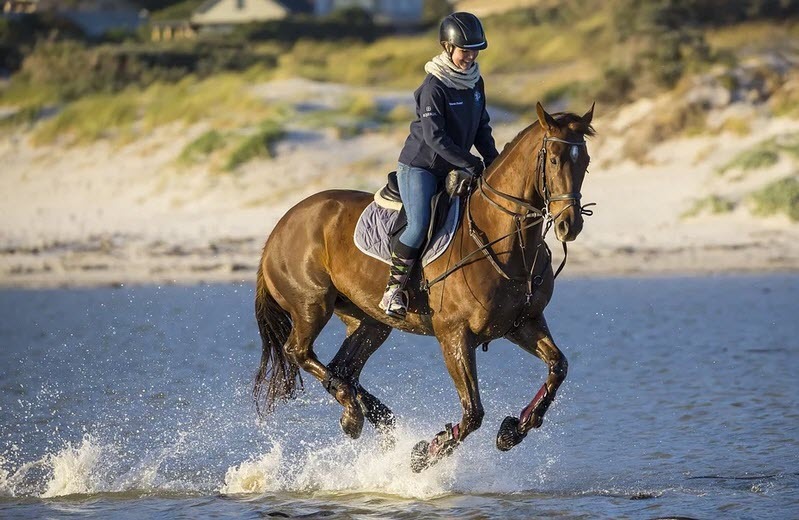
Horse Riding For Those With Disabilities
There are many different reasons why people enjoy the activity of horse riding. Some do so for pure pleasure. Others ride on a professional level. Then many have disabilities that have discovered that horseback riding can be of great benefit to them. In these cases particularly some breed of horses are better suited for this than others.

Types of Disabilities
Therapeutic riding is the term that is being used for the type of horse riding that is proving to be the most beneficial for those with disabilities. These can range from those who have mental disabilities to those with many different types of physical disabilities. For example, a lot of people who suffer from chronic diseases like osteoarthritis find that they can benefit from this type of activity.
This combined with other forms of exercise and extra efforts to follow an osteoarthritis diet have found that they have great benefits from all of this.
Then some are recovering from accidents that find that horse riding is a great exercise for them.
Some may think that it is the horse that is doing all the work in this particular form of activity. However, there are many physical and mental tasks that the rider must complete as well. It is these that make this activity so beneficial to them based on their particular type of disability.
Best Horse Breeds for Therapeutic Riding
There are many different types of breeds of horses. For this particular responsibility, those which have a kind and calm nature are often the best suited for riders with disabilities. These can include:
- Norwegian Fjord
- Morgan
- American Quarter Horse
- Connemara Pony
- Appaloosa
While these are the breeds that are normally considered to have the most docile nature there can be exceptions to this. Other factors come into play such as their ancestry as well as their age, and also in the way they have been raised and handled.
Most often those with disabilities may be intimidated by the size of the horse. It should be kept in mind that even the ponies can be spunky and difficult to handle at times.
What is more important is the training that comes with getting a horse to fulfil the requirements needed for therapeutic riding. The rider also requires a certain amount of training as well. In most cases, there will always be a handler of the horse but this will depend on the type of disability that the rider is dealing with.
The Benefits
There are a lot of benefits that come with this form of riding. Both on a physical level as well as mentally. Many who are lacking confidence find that horseback riding helps them to become more self-assured.






